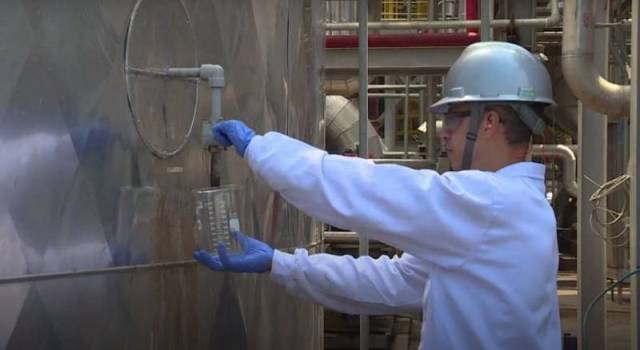
Image source: topwar.ru
After the first successes, an international team of scientists will work on expanding the volume of hydrogen production from seawater by using a larger electrolyzer. If everything goes well, the engineers' immediate plans are to use hydrogen production for fuel cells and ammonia synthesis in commercial processes.
Professor Shizhang Qiao from the University of Adelaide and Associate Professor Yao Zheng from the School of Chemical Engineering led an international team that successfully split seawater without pretreatment to produce "green" hydrogen.
Professor Qiao:
In an interview with the press, his colleague Associate Professor Zheng explained that they used seawater as raw materials without the need for any pretreatment processes - such as reverse osmosis desalination, purification or alkalinization. The performance of a commercial electrolyzer with catalysts operating in seawater is close to the performance of platinum-iridium catalysts operating on feedstock from highly purified deionized water.
Professor Zheng added:
Seawater is an almost infinite resource and is considered a natural electrolyte. This is more practical for regions with a long coastline and abundant sunlight. However, this is impractical for regions where there is little sea water.
The electrolysis of seawater is still at an early stage of development compared to the electrolysis of pure water due to side reactions of the electrodes and corrosion arising from the difficulties of using water with a high level of salinity.
The scientists' development offers a solution for the direct use of seawater without pretreatment systems and the addition of alkali, which demonstrates a performance similar to the efficiency of the existing pure water electrolyzer based on metals.
The prospect of a significant reduction in the cost of a water source plus the rejection of the use of precious metals gives great expectations, as the scientists themselves put it.
